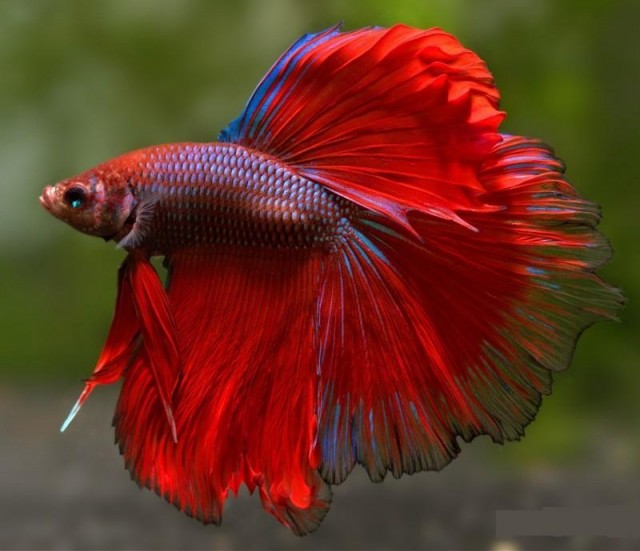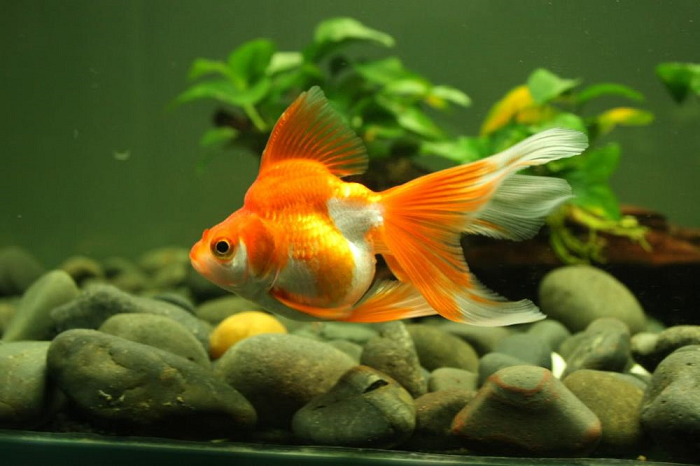10 SECRETS FOR PREVENTION OF DISEASE FOR SMALL FISHES

Aquarium fish are very sensitive to water environmental factors, so it can be said that aquarium water is the most important factor determining the quality of aquarium fish. If the water environment is clean, the hydrological - physical - chemical indicators are suitable, the fish will grow well, with few diseases; On the contrary, fish will get sick right away, even fail to save it in time and cause great damage to farmers.
The change in water quality during the culture process is usually due to the decomposition of excess food or fish feces that pollute the water environment, the growth of zooplankton and algae causing the environment to lack oxygen, and the pH of the water to change. detrimental to fish. Sudden change in water temperature or temperature beyond the tolerance limit of fish is also the cause of aquarium fish disease.
Food for ornamental fish of poor quality, rancid, nutritional ingredients do not meet the growth needs of fish, or fed insufficiently also make fish weak and susceptible to disease attack. Fresh foods for fish such as: artemia, worms, larva... can also be dangerous to fish if not handled because they carry many pathogens.
.jpg)
Improperly catching fish and changing water can also cause fish to lose oil, be scratched, and make fish weak and susceptible to disease attacks. In addition, there are many other factors that can cause disease for fish such as: dirty fish tanks, aquatic plants in the aquarium carrying pathogens, old fish tanks that are not disinfected before raising new ones, ornamental fish that have not been treated. The reason is to stock them with old fish…
Regarding measures to prevent diseases for fish, first of all, choose a source of good quality water to supply to the aquarium and must be treated to bring temperature and pH factors into the appropriate development threshold for fish. The water before stocking fish needs to be exposed to the sun to kill bacteria and release toxic gases.
For well water, it needs to be exposed to the sun for about 12 hours to be able to release fish, but for domestic water, it needs to be exposed to the sun for more than 1 day. Do not stock fish with too high density and many species in the same tank.
Regularly monitor and clean the fish tank, especially the bottom of the tank because long-term storage of fish feces is a source of infection for fish. In the case of adding water or changing new water, it is necessary to choose a water source with hydro-physico-chemical indicators similar to the water in the tank, especially the temperature and pH factors. It is necessary to maintain the difference in water temperature in the culture tank between day and night not exceeding 5 0 C.
Need to actively find fresh food sources, enough nutrients for fish to eat for good growth and development; At the same time, it helps the fish to have a beautiful color. For fresh foods originating from drains, such as: larvae, eggs, it is necessary to wash them before feeding the fish.

The daily food ration of fish should be determined based on the volume of fish in the tank, the health of the fish, and the avoidance of overfeeding. It is necessary to have a specific feeding time schedule as well as the amount of food in each feeding (with adjustment according to weather and seasons), should not be fed according to feelings when more or less often.
When going to the tank, catching fish to check should be handled gently, using a soft racket to shovel fish, to avoid causing damage to the fish.
When preparing for a new batch of fish, it is necessary to disinfect the entire aquarium by drying in the sun until the bottom of the tank is dry.
Then, use quicklime to sweep all over the inside and outside of the tank for the cement tank; for earthen ponds, it is possible to disinfect ponds with powdered lime at a dose of 10 kg/100 m 2 ; for cement ponds, lime chloride (Ca(ClO) 2 ) can be poured into the pond at a dose of 20-25 ppm (20-25 grams/m 3 ) to soak for a week, then rinse the tank to get water in. .
Tools to pick up ornamental fish and contain ornamental fish should be disinfected and cleaned before use. Farmers can disinfect tools by soaking in a 3% saline solution (30g/liter of water) or chlorine at a concentration of 200-250 ppm for 48 hours and then drying. Newly purchased fish also need to be soaked in salt water for 3 minutes (3 grams/liter of water) or a solution of potassium permanganate at a concentration of 10 ppm (10mg/liter of water) for 10-15 minutes to kill bacteria.
During the rearing process, it is necessary to closely monitor the health of the fish. If you see fish with abnormal symptoms, you should immediately remove the fish separately to avoid spreading the disease. After that, it is necessary to quickly identify the type of disease so that appropriate preventive measures can be taken. Note, when the fish has been cured of the disease, it may still carry the disease in the body, so it is not possible to immediately release the fish into the common tank, but it is necessary to monitor it separately for 3-4 days to avoid spreading the disease to other fish.
Here are 10 tips to prevent diseases for ornamental fish you should remember to keep aquarium fish healthy and beautiful:
1. Fish must be looked at carefully before buying. Do not buy fish that are too dark, too thin, too thick, have corroded fins, are scratched on the body, white feces.
2. Freshly purchased fish must be quarantined for a minimum of 6 weeks.
3. Never transfer water from the isolation tank into the rearing tank.
4. Do not use any tools or equipment from the isolation tank for other pools that have not been disinfected.
5. Feed your fish different, high-fiber diets.
6. For fish the optimal habitat.
7. Do not bring aquatic plants into the aquarium if they are planted with fish.
8. Spend a lot of time regularly observing and caring for fish.
9. Only bring the fish home after you are sure it is healthy.
10. Diseased fish should be kept in an isolated aquarium. The isolation pool must be disinfected regularly.